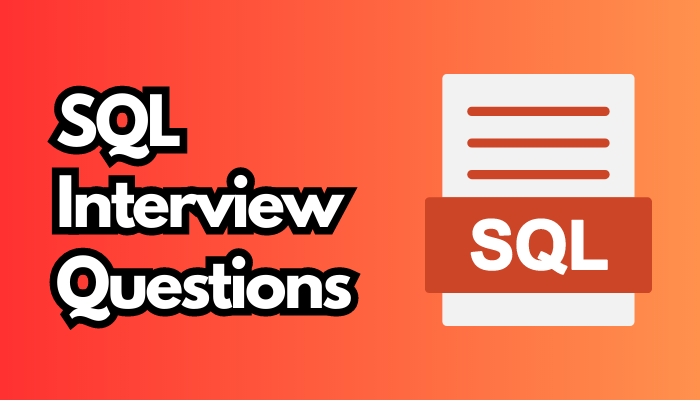Looking for SQL interview questions to prepare for your upcoming job interview? Read on for expert tips and tricks to help you ace your SQL interview questions and land the job of your dreams.
Introduction:
SQL (Structured Query Language) is an essential skill for anyone seeking a career in data management, analysis, and reporting. As companies continue to invest in data-driven technologies, the demand for SQL-savvy professionals has skyrocketed, making it a highly sought-after skill in the job market. But before you land your dream job, you need to ace the SQL interview questions. In this article, we will provide you with expert tips and tricks to help you prepare for your SQL interview questions.
Types of SQL Interview Questions
SQL interview questions can be broadly classified into the following types:
Basic SQL Interview Questions
These questions are designed to test your fundamental knowledge of SQL. Some examples of basic SQL interview questions include:
What is SQL?
What is a database?
What is a table?
What is a primary key?
What is a foreign key?
What is a join?
Intermediate SQL Interview Questions
Intermediate SQL interview questions are designed to test your ability to write complex SQL queries. Some examples of intermediate SQL interview questions include:
What is a subquery?
What is a stored procedure?
What is a trigger?
What is a view?
What is normalization?
What is denormalization?
Advanced SQL Interview Questions
Advanced SQL interview questions are designed to test your ability to solve complex SQL problems. Some examples of advanced SQL interview questions include:
What is a self-join?
What is a recursive CTE?
What is a window function?
What is a pivot table?
What is a dynamic SQL?
What is a temp table?
Tips and Tricks for Preparing for SQL Interview Questions
Here are some expert tips and tricks to help you prepare for your SQL interview questions:
Review Basic SQL Concepts
Before your interview, review the basics of SQL, including:
SQL syntax and structure
Data types
Functions and operators
Creating and modifying tables
Inserting, updating, and deleting data
Querying data with SELECT statements
Practice Writing SQL Queries
Practice writing SQL queries to get comfortable with the syntax and structure. You can use free online SQL sandboxes, such as SQLFiddle, to practice writing queries and testing your results.
Read the Job Description
Read the job description carefully to identify the specific SQL skills the employer is looking for. Tailor your interview answers to demonstrate your experience and expertise in these areas.
Prepare for Behavioral Interview Questions
Employers often ask behavioral interview questions to assess your communication, problem-solving, and teamwork skills. Prepare examples of how you have used SQL to solve business problems, collaborate with team members, and communicate with stakeholders.
Practice Your Presentation Skills
In addition to technical skills, employers also value candidates who can communicate their ideas effectively. Practice your presentation skills by preparing a brief overview of your SQL skills and experience.
Be Honest About Your Abilities
Be honest about your SQL skills and experience. If you don’t know the answer to a question, don’t try to bluff your way through it. Instead, explain how you would approach the problem and demonstrate your problem-solving skills.
FAQs
Q: What is the difference between SQL and MySQL?
A: SQL is a programming language used to manage relational databases, while MySQL is
Q: What is the difference between SQL and MySQL?
A: SQL is a programming language used to manage relational databases, while MySQL is a specific type of database management system that uses SQL as its language.
Q: What is a stored procedure?
A: A stored procedure is a set of SQL statements that are stored in a database and can be executed multiple times without the need to recompile the code each time.
Q: What is a primary key?
A: A primary key is a unique identifier for a row in a table. It ensures that each row is uniquely identifiable and can be used as a reference for related tables.
Q: What is a subquery?
A: A subquery is a query nested within another query. It is used to retrieve data that will be used in the main query.
Conclusion
In conclusion, acing your SQL interview questions requires preparation, practice, and a deep understanding of the fundamental concepts of SQL. By reviewing the basic SQL concepts, practicing writing SQL queries, tailoring your interview answers to the job description, preparing for behavioral interview questions, practicing your presentation skills, and being honest about your abilities, you can increase your chances of success in your SQL job interview. Remember to stay calm, confident, and be yourself, and you’ll be well on your way to landing your dream job. Good luck!
